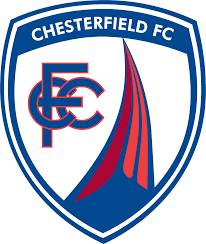 It doesn’t matter if you support a Football team that is winning trophies each year, or a team simply trying to avoid relegation. The exhilaration of a last minute equaliser, or if you are really lucky a last minute winner, is simply indescribable.
It doesn’t matter if you support a Football team that is winning trophies each year, or a team simply trying to avoid relegation. The exhilaration of a last minute equaliser, or if you are really lucky a last minute winner, is simply indescribable.
Unfortunately, that 30 seconds of exhilaration could be cut short if your actions result in you being drawn to the attention of the police if your celebrations have gone too far.
Recently Chesterfield football law solicitor Ben Strelley represented a young client in both police interview and Chesterfield Magistrates’ Court. He had run onto the pitch to celebrate a 93rd minute equaliser at the Chesterfield Town against Ebbsfleet United match.
The Allegation
For those who didn’t follow Chesterfield Town closely during the 2018-2019 league season, it is fair to say it wasn’t its finest year.
In this particular match, Chesterfield had gone 3-0 down to the away team after only 45 minutes. Slowly the Spireites found their feet and clawed back two goals before time added on.
In the 93rd minute Will Evans scored an equaliser to square the game and complete the comeback.
Like many of the 4123 fans in attendance our client, a Chesterfield Town fan, was elated with the goal. So overwhelmed was he by the turnaround he ran on to the pitch with others to celebrate with the Chesterfield Town players.
After the Match
The police were in attendance at the game and had recorded the celebrations of the fans. They subsequently contacted our client to arrange a voluntary interview. He had the good sense to contact Ben for his expert free and independent legal advice in this interview.
The allegation our client faced was that he had committed an offence under sections 4 and 5 of the Football (Offences) Act 1991 by entering the field of play. Although it is possible for a suspect to raise a defence, they must have lawful authority or excuse to be on the pitch, and must prove that this is the case.
Guilty plea at Chesterfield Magistrates’ Court

Football law solicitor Ben Strelley attended court with his client. He was unable to put forward a defence to the charge so pleaded guilty at the first possible opportunity. This would afford him full credit for his plea.
Although this offence would not usually attract a prison sentence, our client had committed this offence during the currency of a suspended sentence order. This means that there was a real risk that this offence would trigger the activation of the suspended sentence. To avoid this, Ben would have to argue successfully that to activate the sentence would be unjust.
Ben spent the time necessary with his client to be able to provide detailed, structured personal mitigation on behalf of his client. This resulted in his client avoiding what might have seemed an inevitable prison sentence. Instead the suspended sentence was varied and he was ordered to undertake 40 hours of additional unpaid work as well as a fine for the new offence.
A football banning order was also imposed. Sometimes it is impossible to mount a successful opposition to these applications! Nonetheless, our client was delighted with the outcome and the fact that he had kept his freedom due to Ben’s expert advice and representation.
Expert representation for a football related offence
If you are arrested or know that the police wish to speak to you about a football related offence then make sure you insist on your right to free and independent legal advice.
The advantages of such early advice legal advice can be found here.
If you have already been interviewed or face court proceedings we can still make a real difference to the outcome of your case.
Legal aid may well be available to fund your defence at court.
We have offices across the East Midlands and will happily travel across the country to provide representation for all football related offences.

Alternatively you can contact us using the form below.




